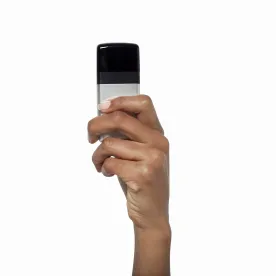Earlier this year, Krush Communications, LLC (Krush) of Brandon, Florida filed a complaint againstLunex Telecom, Inc. (Lunex) of Duluth, Georgia in United States District Court for the District of New Jersey alleging patent infringement, trade secret misappropriation, unfair competition, and tortious interference with business expectations. The case was transferred to the Northern District of Georgia, Atlanta Division by an order signed by Judge Joseph E. Irenas on September 23, 2013.
The charges in the complaint relate to pin-less prepaid long distance products and services. Specifically, Krush is asserting rights related to a method and system of providing an electronic receipt, such as an SMS text message, that allows customers to purchase long distance minutes, 'top-off' wireless phone accounts with additional minutes, and seamlessly use the purchased long-distance minutes from a wireless phone without a personal identification number. To make a phone call, users simply call the toll-free number found in the SMS receipt and enter the number to be reached.
According to the complaint, Lunex launched its pin-less prepaid long distance web portal on or around July 26, 2010. On January 12, 2011, Krush served Lunex with an infringement notice notifying Lunex that its pin-less calling card activities were believed to be covered by Krush's then pending patent application. Krush’s patent application was published on December 30, 2010 and issued asU.S. Patent No. 8,295,805 ("the '805 patent") on October 23, 2012. Prior to issuance, Krush sent a cease and desist letter to Lunex on September 25, 2012.

Fig. 1 of the '805 Patent
In their October 5, 2012 response to the cease and desist letter, Lunex demanded a claims chart or other analysis detailing the alleged infringement. Krush included both a chart and analysis in their October 24th response, along with a reiterated demand that Lunex cease and desist all infringing activity. As a result of Lunex’s alleged failure to cease and desist, Krush now alleges willful infringement and irreparable harm by Lunex's ongoing acts of alleged infringement.
 Regarding the charges of misappropriation of trade secrets and unfair competition, Krush alleges that Lunex approached Krush's former West Coast Manager, Mike Zarkau, to obtain trade secrets he had been introduced to while working for Krush. Krush alleges that Mr. Zarkau revealed to Lunex trade secrets not generally known to the public that Lunex later used and copied, and that Mr. Zarkau worked with Lunex to create and launch Lunex's web portal system despite his having signed a nondisclosure agreement with Krush. Krush seeks damages as a result of Lunex's alleged unjust enrichment and improper use of Krush's confidential information.
Regarding the charges of misappropriation of trade secrets and unfair competition, Krush alleges that Lunex approached Krush's former West Coast Manager, Mike Zarkau, to obtain trade secrets he had been introduced to while working for Krush. Krush alleges that Mr. Zarkau revealed to Lunex trade secrets not generally known to the public that Lunex later used and copied, and that Mr. Zarkau worked with Lunex to create and launch Lunex's web portal system despite his having signed a nondisclosure agreement with Krush. Krush seeks damages as a result of Lunex's alleged unjust enrichment and improper use of Krush's confidential information.
Finally, Krush alleges that Lunex's engaging in the use, sale, and/or distribution of a directly competing product using Krush's trade secrets and confidential information was an intentional interference with Krush's sales and distribution to the general public and therefore a tortious interference with business expectations. As a result, Krush is seeking damages for the loss of prospective economic gain.

Krush seeks a declaration that the '805 patent is valid, has been infringed, and is being infringed by Lunex along with a declaration that Lunex misappropriated trade secrets and judgment that Lunex has engaged in unfair trade competition and tortious interference with business expectations. Krush is also seeking a preliminary and permanent injunction enjoining Lunex from infringing the '805 patent and a permanent injunction against any further misappropriation or interference with business expectations. Finally, Krush is seeking divestment or disgorgement of Lunex's unjust enrichment, treble damages, costs and reasonable attorneys' fees.
The case is Krush Communications, LLC. v. Lunex Telecom, Inc. No. 1:13-cv-03167-SCJ, United States District Court for the Northern District of Georgia, Atlanta Division, and is assigned to Judge Steve C. Jones.
Jonathan Howell contributed to this article.



 />i
/>i

